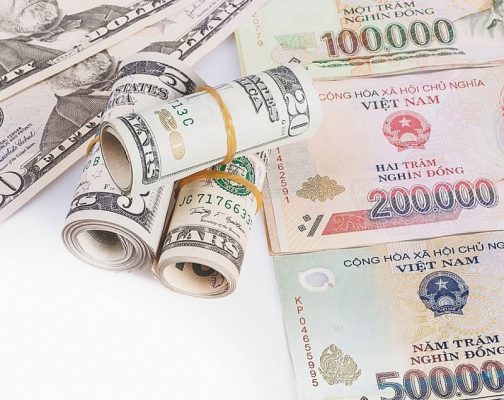VCN – In the context of economic difficulties due to the pandemic, fiscal and monetary policies have become a useful “salvage”. For monetary policy, is there any fiscal space to accelerate it?

Available fiscal space
Due to the impact of the Covid-19 pandemic, along with fiscal policy, many monetary policies have been issued to help people and businesses overcome difficulties. Accordingly, the State Bank of Vietnam (SBV) instructed credit institutions to support, restructure repayment terms, exempt and reduce loan interest for people and businesses, especially in the field of tourism, rural agriculture, import, and export. Moreover, from March to May, the SBV reduced interest rates twice, with a total reduction of 1-1.5% per year to support liquidity for credit institutions, facilitating them to access the SBV’s low-cost capital. Additionally, businesses also benefited thanks to stable exchange rates.
Low inflation and abundant liquidity are the basis for monetary policy to accelerate support in the last months of the year. Capital flows may be cheaper, but cash flow depends on the absorption capacity of the economy and businesses. Many businesses “complain” because monetary policy has not really helped their recovery. In fact, after many adjustments to reduce lending rates, interest rates are still high compared to the “health” of many businesses. Therefore, the desire to lower interest rates is always mentioned by many businesses as an urgent solution for production and business.
At the recent meeting of the National Financial and Monetary Policy Advisory Council, Prime Minister Nguyen Xuan Phuc said unlike most countries, our fiscal and monetary policy space was large for stimulating aggregate demand and promoting growth. Therefore, the Prime Minister requested to actively and flexibly manage fiscal and monetary policy instruments to achieve two objectives: stimulating aggregate demand, promoting growth, removing difficulties for production and life; and keeping macro stability, ensuring large balances, and maintaining trust in direction and administration.
According to banking and finance expert Nguyen Tri Hieu, we have fiscal space, but not much, to further lower interest rates, and pump more money into circulation. Besides, many experts said Vietnam might use the national foreign exchange reserve fund to support growth with reasonable levels and solutions to ensure safety.
Influence from inflation
Although fiscal space is available, the implementation is not favorable. According to Nguyen Tri Hieu, reducing interest rates is not easy because input costs and inflation are still high. On the one hand, banks are mobilizing capital with interest rates from 6-11% per year now. Therefore, it is impossible to reduce interest rates to 7-8% per year as many businesses’ desire. On the other hand, to reduce lending rates, inflation rates must be reduced to 2%. However, the current inflation rate is 4% plus 2% mobilizing interest rates and 3% margin of lending rates. Thus, the lending rates are high, but reducing interest rates in the current context is not easy.
However, inflation control in the remaining months of the year was committed by agencies to maintain at below 4% with many solutions to stabilize the price level. In terms of the exchange rate, for instance, in the past six months, according to experts, the SBV has applied flexible management policies through the central exchange rate, making the exchange rate stable with fluctuations at only 0.2-0.3%, which has contributed to the maintenance of inflation.
According to MBS Securities Company’s experts, pumping more money and lowering interest rates to 0% from the US Federal Reserve (FED) have reduced the pressure on the VND as well as other currencies of emerging countries. However, Dr. Nguyen Xuan Thanh, lecturer at Fulbright University School of Public Policy and Management, said risks in the last months of the year were potential when remittances and FDI disbursement could be reduced. But there would be no great pressure with abundant foreign exchange reserves.
The above problems showed that there were many difficulties, but the Government’s persistent view was to proactively implement fiscal and monetary policies to promote growth. At the recent meeting between Government and localities, SBV Governor Le Minh Hung said the goal from now until the end of the year was to control and keep macroeconomic stability, accompanied with support for economic growth. The SBV committed to continuously direct credit institutions to thoroughly reduce costs and profits to decrease lending rates. In case of necessity, under the Government’s direction, by the end of the year, the SBV will have stronger monetary solutions, such as refinancing projects and works that have a pervasive effect to support economic growth
.Source: customsnews
